The Master said, "There is Yung!-He might occupy the place of a prince."Chung-kung asked about Tsze-sang Po-tsze. The Master said, "He maypass. He does not mind small matters."Chung-kung said, "If a man cherish in himself a reverential feelingof the necessity of attention to business, though he may be easy insmall matters in his government of the people, that may be allowed.
But if he cherish in himself that easy feeling, and also carry itout in his practice, is not such an easymode of procedure excessive?"The Master said, "Yung's words are right."The Duke Ai asked which of the disciples2 loved to learn.
Confucius replied to him, "There was Yen3 Hui; he loved to learn. Hedid not transfer his anger; he did not repeat a fault. Unfortunately,his appointed time was short and he died; and now there is not suchanother. I have not yet heard of any one who loves to learn as hedid."Tsze-hwa being employed on a mission to Ch'i, the disciple1 Zan requestedgrain for his mother. The Master said, "Give her a fu." Yen requestedmore. "Give her a yi," said the Master. Yen gave her five ping.
The Master said, "When Ch'ih was proceeding4 to Ch'i, he had fat horsesto his carriage, and wore light furs. I have heard that a superiorman helps the distressed5, but does not add to the wealth of the rich."Yuan Sze being made governor of his town by the Master, he gave himnine hundred measures of grain, but Sze declined them.
The Master said, "Do not decline them. May you not give them awayin the neighborhoods, hamlets, towns, and villages?"The Master, speaking of Chung-kung, said, "If the calf6 of a brindledcow be red and homed, although men may not wish to use it, would thespirits of the mountains and rivers put it aside?"The Master said, "Such was Hui that for three months there would benothing in his mind contrary to perfect virtue7. The others may attainto this on some days or in some months, but nothing more."Chi K'ang asked about Chung-yu, whether he was fit to be employedas an officer of government. The Master said, "Yu is a man of decision;what difficulty would he find in being an officer of government?"K'ang asked, "Is Ts'ze fit to be employed as an officer of government?"and was answered, "Ts'ze is a man of intelligence; what difficultywould he find in being an officer of government?" And to the samequestion about Ch'iu the Master gave the same reply, saying, "Ch'iuis a man of various ability."The chief of the Chi family sent to ask Min Tsze-ch'ien to be governorof Pi. Min Tszech'ien said, "Decline the offer for me politely. Ifany one come again to me with a second invitation, I shall be obligedto go and live on the banks of the Wan8."Po-niu being ill, the Master went to ask for him. He took hold ofhis hand through the window, and said, "It is killing9 him. It is theappointment of Heaven, alas10! That such a man should have such a sickness!
That such a man should have such a sickness!"The Master said, "Admirable indeed was the virtue of Hui! With a singlebamboo dish of rice, a single gourd11 dish of drink, and living in hismean narrow lane, while others could not have endured the distress,he did not allow his joy to be affected12 by it. Admirable indeed wasthe virtue of Hui!"Yen Ch'iu said, "It is not that I do not delight in your doctrines,but my strength is insufficient13." The Master said, "Those whose strengthis insufficient give over in the middle of the way but now you limityourself."The Master said to Tsze-hsia, "Do you be a scholar after the styleof the superior man, and not after that of the mean man."Tsze-yu being governor of Wu-ch'ang, the Master said to him, "Haveyou got good men there?" He answered, "There is Tan-t'ai Miehming,who never in walking takes a short cut, and never comes to my office,excepting on public business."The Master said, "Mang Chih-fan does not boast of his merit. Beingin the rear on an occasion of flight, when they were about to enterthe gate, he whipped up his horse, saying, "It is not that I dareto be last. My horse would not advance."The Master said, "Without the specious14 speech of the litanist T'oand the beauty of the prince Chao of Sung, it is difficult to escapein the present age."The Master said, "Who can go out but by the door? How is it that menwill not walk according to these ways?"The Master said, "Where the solid qualities are in excess of accomplishments15,we have rusticity16; where the accomplishments are in excess of thesolid qualities, we have the manners of a clerk. When the accomplishmentsand solid qualities are equally blended, we then have the man of virtue."The Master said, "Man is born for uprightness. If a man lose his uprightness,and yet live, his escape from death is the effect of mere17 good fortune."The Master said, "They who know the truth are not equal to those wholove it, and they who love it are not equal to those who delight init."The Master said, "To those whose talents are above mediocrity, thehighest subjects may be announced. To those who are below mediocrity,the highest subjects may not be announced."Fan Ch'ih asked what constituted wisdom. The Master said, "To giveone's self earnestly to the duties due to men, and, while respectingspiritual beings, to keep aloof18 from them, may be called wisdom."He asked about perfect virtue. The Master said, "The man of virtuemakes the difficulty to be overcome his first business, and successonly a subsequent consideration;-this may be called perfect virtue."The Master said, "The wise find pleasure in water; the virtuous19 findpleasure in hills. The wise are active; the virtuous are tranquil20.
The wise are joyful21; the virtuous are long-lived."The Master said, "Ch'i, by one change, would come to the State ofLu. Lu, by one change, would come to a State where true principlespredominated."The Master said, "A cornered vessel22 without corners-a strange corneredvessel! A strange cornered vessel!"Tsai Wo asked, saying, "A benevolent23 man, though it be told him,-'Thereis a man in the well" will go in after him, I suppose." Confuciussaid, "Why should he do so?" A superior man may be made to go to thewell, but he cannot be made to go down into it. He may be imposedupon, but he cannot be fooled."The Master said, "The superior man, extensively studying all learning,and keeping himself under the restraint of the rules of propriety,may thus likewise not overstep what is right."The Master having visited Nan-tsze, Tsze-lu was displeased24, on whichthe Master swore, saying, "Wherein I have done improperly25, may Heavenreject me, may Heaven reject me!"The Master said, "Perfect is the virtue which is according to theConstant Mean! Rare for a long time has been its practice among thepeople."Tsze-kung said, "Suppose the case of a man extensively conferringbenefits on the people, and able to assist all, what would you sayof him? Might he be called perfectly26 virtuous?" The Master said, "Whyspeak only of virtue in connection with him? Must he not have thequalities of a sage27? Even Yao and Shun28 were still solicitous29 aboutthis.
"Now the man of perfect virtue, wishing to be established himself,seeks also to establish others; wishing to be enlarged himself, heseeks also to enlarge others.
"To be able to judge of others by what is nigh in ourselves;-thismay be called the art of virtue."
雍也篇第六
6.1 子曰:“雍也可使南面。”
6.2 仲弓问子桑伯子,子曰:“可也,简。”仲弓曰:“居敬而行简,以临其民,不亦可乎?居简而行简,无乃大简乎?”子曰:“雍之言然。”
6.3 哀公问:“弟子孰为好学?”孔子对曰:“有颜回者好学,不迁怒,不贰过。不幸短命死矣。今也则亡,未闻好学者也。”
6.4 子华使于齐,冉子为其母请粟。子曰:“与之釜。”请益。曰:“与之庾。”冉子与之粟五秉。子曰:“赤之适齐也,乘肥马,衣轻裘。吾闻之也:君子周急不继富。”
6.5 原思为之宰,与之粟九百,辞。子曰:“毋!以与尔邻里乡党乎!”
6.6 子谓仲弓曰:“犁牛之子 且角,虽欲勿用,山川其舍诸?”
6.7 子曰:“回也,其心三月不违仁,其馀则日月至焉而已矣。”
6.8 季康子问:“仲由可使从政也与?”子曰:“由也果,于从政乎何有”曰:“赐也可使从政也与?”曰:“赐也达,于从政乎何有?”曰:“求也可使从政也与?”曰:“求也艺,于从政乎何有?”
6.9 季氏使闵子骞为费宰。闵子骞曰:“善为我辞焉!如有复我者,则吾必在汶上矣。”
6.10 伯牛有疾,子问之,自牖执其手,曰:“亡之,命矣夫!斯人也而有斯疾也!斯人也而有斯疾也!”
6.11 子曰:“贤哉,回也!一箪食,一瓢饮,在陋巷,人不堪其忧,回也不改其乐。贤哉,回也!”
6.12 冉求曰:“非不说子之道,力不足也。”子曰:“力不足者,中道而废。今女画。”
6.13 子谓子夏曰:“女为君子儒!无为小人儒!”
6.14 子游为武城宰。子曰:“女得人焉耳乎?”曰:“有澹台灭明者,行不由径,非公事,未尝至于偃之室也。”
6.15 子曰:“孟之反不伐,奔而殿,将入门,策其马,曰:‘非敢后也,马不进也。’”
6.16 子曰:“不有祝鲩之佞,而有宋朝之美,难乎免于今之世矣!”
6.17 子曰:“谁能出不由户?何莫由斯道也?”
6.18 子曰:“质胜文则野,文胜质则史。文质彬彬,然后君子。”
6.19 子曰:“人之生也直,罔之生也幸而免。”
6.20 子曰:“知之者不如好之者,好之者不如乐之者。”
6.21 子曰:“中人以上,可以语上也;中人以下,不可以语上也。”
6.22 樊迟问知。子曰:“务民之义,敬鬼神而远之,可谓知矣。”问仁。曰:“仁者先难而后获,可谓仁矣。”
6.23 子曰:“知者乐水,仁者乐山。知者动,仁者静。知者乐,仁者寿。”
6.24 子曰:“齐一变,至于鲁;鲁一变,至于道。”
6.25 子曰:“觚不觚,觚哉!觚哉!”
6.26 宰我问曰:“仁者,虽告之曰:‘井有仁焉。’其从之也?”子曰:“何为其然也?君子可逝也,不可陷也;可欺也,不可罔也。”
6.27 子曰:“君子博学于文,约之以礼 ,亦可以弗畔矣夫!”
6.28 子见南子,子路不说。夫子矢之曰:“予所否者,天厌之!天厌之!”
6.29 子曰:“中庸之为德也,其至矣乎!民鲜久矣。”
6.30 子贡曰:“如有博施于民而能济众,何如?可谓仁乎?”子曰:“何事于仁!必也圣乎?尧舜其犹病诸!夫仁者,已欲立而立人,已欲达而达人。能近取譬,可谓仁之方也已。”
1 disciple
n.信徒,门徒,追随者
参考例句:
Your disciple failed to welcome you.你的徒弟没能迎接你。
He was an ardent disciple of Gandhi.他是甘地的忠实信徒。
2 disciples
n.信徒( disciple的名词复数 );门徒;耶稣的信徒;(尤指)耶稣十二门徒之一
参考例句:
Judas was one of the twelve disciples of Jesus. 犹大是耶稣十二门徒之一。 来自《简明英汉词典》
"The names of the first two disciples were --" “最初的两个门徒的名字是——” 来自英汉文学 - 汤姆历险
3 yen
n. 日元;热望
参考例句:
He wanted to convert his dollars into Japanese yen.他想将美元换成日币。
He has a yen to be alone in a boat.他渴望独自呆在一条船上。
4 proceeding
n.行动,进行,(pl.)会议录,学报
参考例句:
This train is now proceeding from Paris to London.这次列车从巴黎开往伦敦。
The work is proceeding briskly.工作很有生气地进展着。
5 distressed
痛苦的
参考例句:
He was too distressed and confused to answer their questions. 他非常苦恼而困惑,无法回答他们的问题。
The news of his death distressed us greatly. 他逝世的消息使我们极为悲痛。
6 calf
n.小牛,犊,幼仔,小牛皮
参考例句:
The cow slinked its calf.那头母牛早产了一头小牛犊。
The calf blared for its mother.牛犊哞哞地高声叫喊找妈妈。
7 virtue
n.德行,美德;贞操;优点;功效,效力
参考例句:
He was considered to be a paragon of virtue.他被认为是品德尽善尽美的典范。
You need to decorate your mind with virtue.你应该用德行美化心灵。
8 wan
(wide area network)广域网
参考例句:
The shared connection can be an Ethernet,wireless LAN,or wireless WAN connection.提供共享的网络连接可以是以太网、无线局域网或无线广域网。
9 killing
n.巨额利润;突然赚大钱,发大财
参考例句:
Investors are set to make a killing from the sell-off.投资者准备清仓以便大赚一笔。
Last week my brother made a killing on Wall Street.上个周我兄弟在华尔街赚了一大笔。
10 alas
int.唉(表示悲伤、忧愁、恐惧等)
参考例句:
Alas!The window is broken!哎呀!窗子破了!
Alas,the truth is less romantic.然而,真理很少带有浪漫色彩。
11 gourd
n.葫芦
参考例句:
Are you going with him? You must be out of your gourd.你和他一块去?你一定是疯了。
Give me a gourd so I can bail.把葫芦瓢给我,我好把水舀出去。
12 affected
adj.不自然的,假装的
参考例句:
She showed an affected interest in our subject.她假装对我们的课题感到兴趣。
His manners are affected.他的态度不自然。
13 insufficient
adj.(for,of)不足的,不够的
参考例句:
There was insufficient evidence to convict him.没有足够证据给他定罪。
In their day scientific knowledge was insufficient to settle the matter.在他们的时代,科学知识还不能足以解决这些问题。
14 specious
adj.似是而非的;adv.似是而非地
参考例句:
Such talk is actually specious and groundless.这些话实际上毫无根据,似是而非的。
It is unlikely that the Duke was convinced by such specious arguments.公爵不太可能相信这种似是而非的论点。
15 accomplishments
n.造诣;完成( accomplishment的名词复数 );技能;成绩;成就
参考例句:
It was one of the President's greatest accomplishments. 那是总统最伟大的成就之一。
Among her accomplishments were sewing,cooking,playing the piano and dancing. 她的才能包括缝纫、烹调、弹钢琴和跳舞。 来自《现代英汉综合大词典》
16 rusticity
n.乡村的特点、风格或气息
参考例句:
He was ashamed of his own rusticity in that distinguished company. 在那伙人当中他因自己粗俗而惭愧。 来自辞典例句
There is an important difference between rusticity and urbanity. 朴实和文雅之间有很大的差别。 来自互联网
17 mere
adj.纯粹的;仅仅,只不过
参考例句:
That is a mere repetition of what you said before.那不过是重复了你以前讲的话。
It's a mere waste of time waiting any longer.再等下去纯粹是浪费时间。
18 aloof
adj.远离的;冷淡的,漠不关心的
参考例句:
Never stand aloof from the masses.千万不可脱离群众。
On the evening the girl kept herself timidly aloof from the crowd.这小女孩在晚会上一直胆怯地远离人群。
19 virtuous
adj.有品德的,善良的,贞洁的,有效力的
参考例句:
She was such a virtuous woman that everybody respected her.她是个有道德的女性,人人都尊敬她。
My uncle is always proud of having a virtuous wife.叔叔一直为娶到一位贤德的妻子而骄傲。
20 tranquil
adj. 安静的, 宁静的, 稳定的, 不变的
参考例句:
The boy disturbed the tranquil surface of the pond with a stick. 那男孩用棍子打破了平静的池面。
The tranquil beauty of the village scenery is unique. 这乡村景色的宁静是绝无仅有的。
21 joyful
adj.欢乐的,令人欢欣的
参考例句:
She was joyful of her good result of the scientific experiments.她为自己的科学实验取得好成果而高兴。
They were singing and dancing to celebrate this joyful occasion.他们唱着、跳着庆祝这令人欢乐的时刻。
22 vessel
n.船舶;容器,器皿;管,导管,血管
参考例句:
The vessel is fully loaded with cargo for Shanghai.这艘船满载货物驶往上海。
You should put the water into a vessel.你应该把水装入容器中。
23 benevolent
adj.仁慈的,乐善好施的
参考例句:
His benevolent nature prevented him from refusing any beggar who accosted him.他乐善好施的本性使他不会拒绝走上前向他行乞的任何一个乞丐。
He was a benevolent old man and he wouldn't hurt a fly.他是一个仁慈的老人,连只苍蝇都不愿伤害。
24 displeased
a.不快的
参考例句:
The old man was displeased and darted an angry look at me. 老人不高兴了,瞪了我一眼。
He was displeased about the whole affair. 他对整个事情感到很不高兴。
25 improperly
不正确地,不适当地
参考例句:
Of course it was acting improperly. 这样做就是不对嘛!
He is trying to improperly influence a witness. 他在试图误导证人。
26 perfectly
adv.完美地,无可非议地,彻底地
参考例句:
The witnesses were each perfectly certain of what they said.证人们个个对自己所说的话十分肯定。
Everything that we're doing is all perfectly above board.我们做的每件事情都是光明正大的。
27 sage
n.圣人,哲人;adj.贤明的,明智的
参考例句:
I was grateful for the old man's sage advice.我很感激那位老人贤明的忠告。
The sage is the instructor of a hundred ages.这位哲人是百代之师。
28 shun
vt.避开,回避,避免
参考例句:
Materialists face truth,whereas idealists shun it.唯物主义者面向真理,唯心主义者则逃避真理。
This extremist organization has shunned conventional politics.这个极端主义组织有意避开了传统政治。
29 solicitous
adj.热切的,挂念的
参考例句:
He was so solicitous of his guests.他对他的客人们非常关切。
I am solicitous of his help.我渴得到他的帮助。
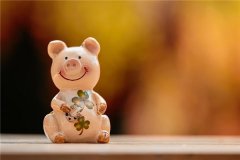
83年猪女40岁后命运开始好,40岁的猪命最好
4-29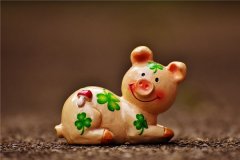
83属猪的人十年大运
4-29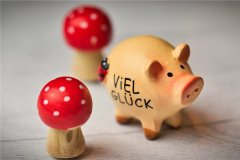
83属猪的一生婚姻外遇
4-29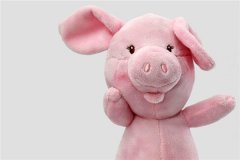
1947年的猪寿终是哪年
4-29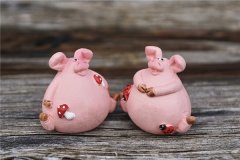
1959年属猪的是什么命,属猪人运势好不好
4-29
1971年猪十年大运预测
4-29